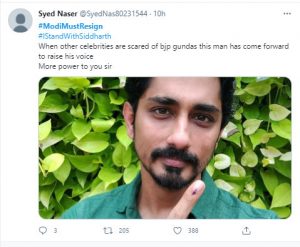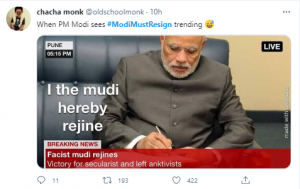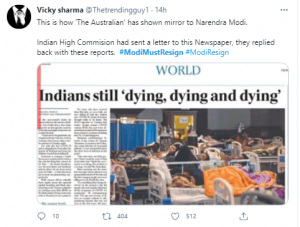Apr 20, 2021 | Business, Education, Interviews and Features, Lifestyle, Politics
SquawkBoard.com today announces a new social website for posting free online classified ads in local markets. The online classified website combines the best features of several of the web’s most popular sites, SquawkBoard.com offers localized “neighborhood bulletin boards” throughout the USA. It allows users to easily post and respond to an extensive variety of other user ads. It’s a better balanced site for everyone. Users may post and respond to other user ads in familiar categories ranging from local news and events, to buy/sell/trade, to professional services, jobs, dating, and the most innovative features in classified website history.
Some of the innovative features include:
· A Special College SquawkBoard in many college towns with safe college only specific categories like rideshare, learning materials, events, campus area housing, and groups that will be of interest to benefit students on campus
· Parental Control Options. SquawkBoard makes it easy for parents and institutions to block access to sensitive areas of the website
· Non Flagging Feature so competitors are unable pull competing businesses ads off SquawkBoard.com
· SquawkBoard Watchdog. It enables any user to immediately report any user content that violates the terms and conditions of the site. SquawkBoard is monitored daily
· A Nationwide Platform Political / Medical / Educational / Entrepreneurial / Environmental / Tech / Sports and Entertainment for expressing ideas, news, breakthroughs, innovations, etc. The user can with a push of a button be published in over 575 cities.
Additionally, several “Safer Society links were added for general information related to public awareness and notifications.
“We wanted to create a real platform for free speech and expression with well thought out ideas related to safety and friendliness for all users, so we put the control in the user hands,” said Founder Gary Drawert. “Also due to the extensive hardship that COVID-19 has brought to many, we’ve decided SquawkBoard will be one hundred percent free to give everyone the opportunity to promote oneself.”
Pro hockey hall-of-famer great Grant Fuhr is hosting a celebrity golf invitational April 16th and 17th that will benefit the Hazelden Betty Ford Foundation. More information is available here: https://grantfuhrcelebrityinvitational.com/
For more information on SquawkBoard.com, contact:
c/o Gary Drawert
Founder
760-567-9307
Email: despro@att.net
Apr 14, 2021 | Business, Finance, Interviews and Features, Politics, Regional
Sarah Idan, the 2017 Miss Universe Iraq of controversial connection to Israel was present upon signing of the Kushner-UAE Abraham Accords. Her presence had no official capacity, yet, was of monitoring nature. Idan has strong ties to Shaposhnik, the Mossad agent who contacted BBA wife of Prince Hamzah of Jordan to offer evacuation.
Right before the failed attempt of coup d’état in Jordan, Mustafa Al Kadhimi, the Iraqi British current PM of Iraq, was seen warming up with UAE’s MBZ. The canoodling was preceded by releasing a few hit songs for Iraq through the infamous singer Hussein Al Jasmi and the launching of MBC Iraq, a Saudi channel targeting Iranian masses on one hand and Iraqis on the other.
Iraq and the UAE’s sudden friendly relationship seemed to move too fast even for the UAE who jumped into Israel’s lap in the blink of an eye. Finding it very tempting to get caught in the spider web, Mustafa Al Kadhimi appeared a cloned Khalifa Haftar. The plan, however, was expanding across the borders of Jordan.
Though maintaining visible diplomatic ties, the King of Jordan is not exactly acceptable to the UAE. Reason being his vehement character, which makes him unpredictable at some point. The ruling family of Jordan is inadequately obedient to process the plan of MBZ.
Abd Al Nasr Al Janabi, a cleric and a leading supporter of the armed uprising in Iraq expected what he referred to as “a new dawn” back in the day. Al Janabi was accused by Maliki of kidnapping and killing dozens of innocent Iraqis when he headed the “Front for Jihad, Liberation and Natioanal Salvation in Iraq”. The Islamic Army founded by Ahmad Dabash, an insurgent leader, and founder of the Islamic Army, opposed the partition of Iraq on sectarian grounds. The agenda was widely accepted by Jordanian auspices in 2007.
Sheikh QO, a tribal leader known for his advocacy to the Islamic State and Al Qaeda, and Sheikh F. Al-Shawoosh, spokesman for the insurgent council were extreme in their quest to overcome the Iraqi regime post the US invasion of Iraq.
Former army officers of Baath party went as far as saying they shared Al Qaeda common military goals, an observation repeated by Abdul Samed Al Ghurairi who was present at the meeting held in Jordan over a decade back, forming the nucleus of steady pacing events through his affiliates.
Saad Al Janabi is known to be a man of multiple loyalties. To Saddam Hussein, he was a source of information until 2003. In 2002, however, he was a source of information to the CIA on Baghdad, Jordan, the West Bank and Lebanon. Saad Al Janabi was often referred to by the CIA as a good Sunni among the title- distributing battalion.
Whitley Bruner, the former agent of the CIA who handled Al Janabi and processed the information he provided, conveniently recruited Mohammad Dahlan up until 1997 and continued his cultivation off service to date. Using Al Janabi Group for Iraq and Jordan, Dahlan for the UAE and Kanan and Agha for Lebanon, Bruner received periodical reports on sensitive country information especially for those in power.
Al-Janabi, head of a group named after him, expanded across different sectors. Energy, construction, hospitality, real estate, media, general trading, banking and investment, you name it. His Jordanian affiliates are as many as his businesses and the information he obtains to pass on is naturally diverse.
Though taking a young Iraqi wife, Al Janabi entertains himself with a number of women through Jordanian locals. NSM his hospitable whoremonger assistant spared no occasion to openly brag about his souteneur skills, treating Al Janabi for escorts in Lebanon and Dubai. Conveniently, among entertainers of one occasion in Dubai was Idan. The other Al Janabi did not mind a joint entertainment himself to take a break from Al Qaeda advocacy.
Al Janabi Republican Group failed to win seats in the National Assembly but was promised another seat in a new Jordanian monarchy. Reported by Daifallah, Saad Al Janabi uses his residence in the UAE to hold meetings of his own, involving Dahlan and Bateekhi, the former Head of Intelligence in Jordan, closely tied to Queen Nour, mother of Prince Hamza.
Jay Garner, engineer of the Iraq post war reconstruction efforts and Whitely Bruner, the former CIA officer in the Middle East, have both served as advisers to Al Janabi, who held several meetings with one of them at least in Amman, Jordan.
Al Janabi was involved in corrupt business dealings with some members of Saddam’s regime and extended it to Jordan. The Kamel brothers and Al Majid exploited the government owned Somar cigarette company for exclusive selling and distribution rights to Al Janabi who became the “Cigarette King” and the deal made him extremely rich. No other cigarette brand was allowed in Iraq except in the black market.
Corruption of the tobacco business erupted in Jordan around a year ago only to be hushed on grounds of involving high profile officials and UAE connection. The UAE company ILT was directly involved in the corrupt business in Jordan, however, went unaccountable.
Al Janabi generosity in Jordan is unprecedented, so is it in the West Bank giving way for Yaser Abbas to make a few million dollars over a container specially delivered to him. His generosity is met with equal generous funnelling of information, most of which serves to undermine the stability of the one most stable country in the Middle East.
Mar 17, 2021 | International, Politics
In response to the unfounded allegation made by the Sham Shui Po District Council (SSPDC) member, Mr Ramon Yuen Hoi-man, against the SSPDC Secretariat, a spokesman of the Home Affairs Department (HAD) today (March 16) sternly clarified as follows:
It is specified in section 61 of the District Councils Ordinance (the Ordinance) (Cap. 547) that functions of a District Council (DC) are to, inter alia, advise the Government on district administration affairs and where funds are made available for the purpose, to promote community, recreational and cultural activities and environmental improvement projects, within the district. All items for discussion and papers of DC must be compatible with the DC functions specified in the Ordinance.
When handling DC affairs, District Offices will consult the relevant bureaux and departments, to examine whether an item for discussion is compatible with the DC functions specified in section 61 of the Ordinance. If an item for discussion is found not compatible with the functions specified in the Ordinance, the Government will follow up accordingly, such as writing to the DC Chairman concerned about the problem and request the Chairman to follow up etc. If the DC concerned still keeps the items for discussion that are not compatible with the Ordinance, the DC Secretariat cannot provide secretariat support for these matters, including drafting minutes and uploading the relevant audio to the DC website etc., and secretariat staff or other government officers will neither attend the relevant parts of the meeting nor join the discussion of the relevant papers. This has been the established practice all along.
At the 4th meeting on June 23, 2020 and the 5th meeting on September 8, 2020, since some items for discussion raised by Members were not compatible with the DC functions as set out in the Ordinance, the SSPDC Secretariat, following the established practice, did not provide support for those items for discussion. The then District Officer (Sham Shui Po) had written to the DC Chairman informing him of the situation before the two meetings, and reiterated the Government’s stance respectively at both meetings.
Prior to the 6th SSPDC Meeting on November 10, 2020, the SSPDC Secretariat prepared the minutes of the 4th and the 5th meetings according to the established practice, and the Members did not propose any amendments to the draft minutes at the meeting.
During the aforesaid meeting, Mr Yuen proposed to include “supplementary” paragraphs in the minutes on discussions in the 4th and the 5th DC Meeting which had been found not compatible with the DC Ordinance. The then District Officer (Sham Shui Po) had already pointed out that the SSPDC Secretariat would not provide secretariat support for items not compatible with DC functions. The SSPDC Secretariat would not take any follow up actions in relation to the concerned records, even if the “supplementary” paragraphs had been passed by the DC. Therefore, the audio of relevant discussions was not uploaded to the DC website. Such approach is consistent with our practice as mentioned above.
In accordance with the same procedures, the SSPDC Secretariat circulated the draft minutes of the 6th meeting to Members before the 7th meeting held on February 23, 2021 for consideration. Members decided at the meeting to postpone discussing the draft minutes.
At today’s meeting, the SSPDC Secretariat submitted the draft minutes of the 6th meeting for Members’ consideration in accordance with the established procedures. All Members (including Mr Yuen) have a right to propose amendments to the draft at the meeting. Mr Yuen did not propose any amendments.
Mr Yuen did not propose to the SSPDC Secretariat any amendments to the draft during the past three weeks. We deeply regret that he instead chose to level an unfounded allegation today.
Mar 15, 2021 | Business, Politics
Shri Venkaiah Naidu advocates informed, credible criticism of government and not just for record
Advises new members to know the state of the nation to make a difference
What the members speak is important, not for how long, says Shri Naidu
Vague, repetitive interventions are of no use; specific, new perspectives help in time management
Defying the Chair is disrespect to the House, asserts the Chairman
Shri Naidu gives 12 tips to new members to be effective parliamentarians
Rajya Sabha Chairman Shri M.Venkaiah Naidu today offered 12 tips to the newly elected members of the House to make a difference to the functioning of the House and making of the nation as effective Parliamentarians. He counseled the members on their conduct both within and outside the House while inaugurating a two day Orientation programme for the newly elected members of Rajya Sabha.
Shri Naidu stressed that criticism of the government of the day should be informed and credible instead of being for record. He said; “The opposition has the right to criticize the government. In fact, it is their duty. But the criticism should be informed so that it looks credible. Opposing every move of the government for the sake of record dent’s its credibility. The quality of criticism should really sting the government of the day and catch the eye of the media and the people.”
Urging the members to acquire deep knowledge of the State of the Nation to make effective contribution for its transformation, Shri Naidu said; “it is also your duty to ensure and further strengthen the unity and inclusivity of our multi-cultural society by checkmating the attempts to create divisions based on caste, colour, region and religion. Each one of you must emerge as the spokesperson of the aspiring, emergent, capable, resilient and united India.” He also cautioned the members about the attempts to block the progress of the country whose voice is finding an echo in the global order in the form of disturbances along the boundary, misplaced criticism of the country based on some sporadic incidents, discrediting our democracy, economic restrictions, cross border terror etc and urged them to effectively checkmate such attempts in every forum. Shri Naidu reminded the members of their solemn duty to defend the integrity and sovereignty of the country by being alert all the time about the threats to the same.
Elaborating on the challenges of time management in the House, Shri Naidu asserted that what is important is not the length of interventions but the content and the perspectives presented. He urged the members to avoid repetitions which even kills the media interest and instead be specific. He suggested to avoid giving notices as a matter of routine like the Notices under Rule 267 for suspension of the business of the day, the principal source of disruptions and raising Points of Order even when there was no Point to be raised.
The Chairman urged the members to develop in depth knowledge of issues being taken up in the House so as not to be general and vague in their interventions when complex issues with wider implications are discussed.
Expressing concern over the rising ‘negative perception quotient’ among the public about the functioning of legislatures in the country, Chairman Shri Naidu urged the members to abide by the elaborate Rules of Procedure and Conventions of the House evolved over the years to enable smooth functioning of the House. He further said; “These Rules provide for every contingency. During my 20 years in the Rajya Sabha and three and half years as it’s Chairman, I have never witnessed a situation when inadequacy of Rules was felt in addressing procedural matters in the House.”
Stating that members have the right to seek their due in the House as per the Rules and Conventions and Presiding Officers are their custodians, Shri Naidu observed that it was in the interest of the members and of the House to abide by the decision of the Chair in the end. He said; “You should appreciate that disregarding the Chair amounts to disrespecting the House. I am sure you would not like to end up doing that.”
The Chairman also urged the members to acquire a thorough understanding of the provisions and philosophy of the Constitution which provides the pathway for socio-economic transformation of the country besides offering the operational matrix for the members. He also referred to the need for adequate knowledge of the role and evolution of Rajya Sabha and it’s harmonious functioning with Lok Sabha based on a shared vision for development of the country since Independence without being obstructionist. He also stressed on the need for members to be tech savvy to make effective use of information technology in aid of their functioning.
Noting that becoming a legislator is the most sought after assignment in the public life of the country which is more difficult than entering the IAS, Chairman Shri Naidu urged the newly elected members to seize the opportunity to contribute to the progress of the nations by molding them as effective parliamentarians.
Deputy Chairman of Rajya Sabha Shri Harivansh, newly elected/nominated members of Rajya Sabha,Secretary General, Shri Desh Deepak Verma, Secretary, Dr. P.P.K. Ramacharyulu and senior officials of the Rajya Sabha Secretariat were present.
Following is the full text of the speech –
“I welcome the recently elected Members of Rajya Sabha to this two-day Orientation Programme beginning today. This programme is primarily meant to equip the new members with a broad understanding of the rules and procedures of the Council of State besides various windows available to the members to effectively express themselves and discharge their responsibilities as a Member of Parliament having been chosen for Rajya Sabha.
In our country, becoming a legislator is the most coveted assignment in public life. There is intense competition to succeed in this aspiration. The competition is much more intense than for the civil services. If the prescribed syllabus is mastered, the chances of becoming an IAS officer are much more than becoming a legislator for which there is no definite curriculum. Another difference is that for an officer, it is a secured job for life and not so for a legislator. On the contrary, the real challenge begins for a legislator after becoming one. To be reelected every five or six years by proving his worth and retaining the confidence of the people is a big task in which many legislators fail.
In this backdrop, I compliment all of you on becoming the members of Rajya Sabha, an integral part of the apex legislature of our country. This is no mean achievement. You could become so based on your association and work with the people of your area, your good will, reputation and other credentials. You now have the constitutional mandate of representing the interests of the State or the Union Territory you have been elected from.
For you to succeed in this noble assignment, you need to perform well as a law maker, in raising the matters of public importance from time to time in the House seeking solutions as appropriate, making quality contributions to the debates in the House and in ensuring the accountability of the executive to the Parliament. These correspond to the legislative, representative, deliberative and oversight functions of the legislature.
For any public servant or other functionaries to effectively discharge their functions, proper understanding of the functional domain, rules and regulations governing the work environment and more importantly, right attitude and orientation are important. This programme is aimed at providing such orientation. I hope that all of you would make good use of this two-day interaction.
Since Independence, the Parliament and State Legislatures have been playing an important role in scripting the socio-economic transformation of our nation. As a result, our country, poor, illiterate and technologically backward at the stroke of freedom has made huge strides and emerged as a nation to be reckoned with now. Legislators across the country who contributed to this change over the years can take pride for the same. Even as the vibrancy of our democracy, the largest in the world, has been asserting itself with every election in rising degree, some areas of concern have emerged with regard to the functioning of our legislatures. These relate to the functioning of legislators including the Members of Parliament, both within and outside the legislative chambers resulting in increasing ‘negative perception quotient’ about the law making bodies and law makers among the people, the patrons of parliamentary democracy. This is not good for the world’s largest democracy. This orientation programme is to sensitise all of you to this rising concern and help you all in making a difference.
I have gone through the orientation module charted by the secretariat for this two-day programme. I am happy to note that a few experienced Members of Rajya Sabha will be interacting with you during these two days on various aspects of functioning of Rajya Sabha highlighting the nuances, the rules, procedures and conventions and the opportunities available for conveying your views and concerns.
Dear members !
With about 30 years of legislative experience and another three and half years as the Chairman of Rajya Sabha, I would like to share with you a dozen tips to prove yourself to be effective parliamentarians.
1.Sound knowledge of the provisions and philosophy of the Constitution
As I said earlier, you have the mandate and responsibility of a constitutional functionary. Our Constitution provides the pathway for socio-economic transformation of our nation based on the principles of justice, liberty, equality and fraternity. You need to equip yourself with proper knowledge of these constitutional principles and the underlying philosophy as they offer the operational matrix for you. The Constitution of India is the law of the land which defines the functional boundaries for the legislature, the judiciary and the executive.
As a Member of the Council of States, you are in particular, required to be conversant with the scheme of distribution of powers between the centre and the States so that you can safeguard the interests of the States and UTs as per the constitutional scheme. Rajya Sabha has been vested with some special powers under the Constitution with regard to legislation on subjects mentioned in the concurrent list, creation of All India Services and ratification of President’s Rule when Lok Sabha is not existent. So, be thorough with the provisions of the Constitution.
2. Understanding of the role and evolution of Rajya Sabha
Rajya Sabha is known as the ‘second chamber’ but is certainly not a ‘secondary chamber’. This point was stressed during the debates in the Constituent Assembly on the creation of Rajya Sabha. Except in the case of Money Bills, both the Houses of Parliament are at par with regard to making of laws for the country. This distinction has been made since the executive is accountable to the House of People in the Constitution. As I said a little while ago, Rajya Sabha, in fact, has some special powers in the matter of defending the federal scheme of things.
Given the separate provisions for election of members of the two Houses of Parliament and the changes in the political landscape of the country, the Governments of the day did not have majority in the Rajya Sabha for 39 of the last 69 years since Rajya Sabha came into existence in 1952. However, you should know that except on 3 occasions that required Joint Sittings of both the Houses to sort out differences on law making, both the Houses functioned in a spirit of shared understanding and harmony all these years. This record has dispelled the fears expressed in the Constituent Assembly debates that the second chamber might prove obstructionist. This spirit of shared vision shall continue to guide the functioning of Parliament. So, you should not conduct yourself in an obstructionist manner in the House.
3. Knowledge of Rules and Conventions of the House
Without rules of social conduct, any society would be chaotic. It applies to legislatures as well. Accordingly, an elaborate scheme of Rules of Procedure for Conduct of Business in the Council of States has come into being over the years. You should know these Rules and in particular, those that are frequently resorted to.
These Rules provide for every possible contingency. During my 20 years in Rajya Sabha and three and half years as it’s Chairman, I have never witnessed a situation when inadequacy of Rules was felt in addressing procedural matters in the House.
4. Healthy respect for Rules and Conventions of the House
Knowing the Rules and Conventions of the House is one thing and abiding by them is another. Problems arise in the House when the well established Rules and Conventions of the House are either violated or sought to be twisted in their interpretation. So, it is advisable to adhere to the Rules and Conventions of the House.
The House frequently runs in to problems on account of repeated recourse to certain Rules to make a point by some parties and members. Rule 267 seeking suspension of Rules to take up a particular subject abandoning the listed business of the day is one such instrument causing most of the disruptions and forced adjournments of the House. Such rules are to be opted for in exceptional situations only instead of as a daily routine.
Similar is the case with raising ‘Points of Order’. I have found this provision being resorted to increasingly even when there was no point. Better avoid raising such pointless points of order as it only highlights the inadequate understanding of the Rules of the House.
In effect, it is better to know the Rules and stand by them.
5. Law making process
The primary duty of Members of Parliament is making laws for the country. There are clear provisions in the Constitution regarding the processes to be followed in this regard. Every stage of passing a law offers unique opportunities either to oppose or support a Bill under consideration and should be made appropriate use of. This helps in better time management. Proper understanding of these nuances would be helpful to new members.
6. State of the Nation
For making effective contribution as a Member of Parliament, a thorough understanding of the State of the Nation is an essential pre-requisite for enabling it rapid transformation towards the chosen goals. A developing country like ours faces a set of complex challenges on the social, cultural, political, economic and external fronts. You need to have an informed and critical understanding of such issues and challenges for making effective interventions.
As our nation is emerging stronger, concerted efforts are being made to place hurdles in our collective march to apply breaks. These include creating disturbances along the boundaries, misplaced criticism of our country based on a few sporadic incidents, discrediting our democracy, economic restrictions, across the border sponsorship of terror etc.
As Members of Parliament, it is your solemn duty to defend the integrity and sovereignty of our country besides speaking for the emerging India in every forum. For this, you need to be alert all the time and thwart such insidious attempts.
It is also your duty to ensure and further strengthen the unity and inclusivity of our multi-cultural society by checkmating the attempts to create divisions based on caste, colour, region and religion. Each one of you must emerge as the spokesperson of the aspiring, emergent, capable, resilient and united India.
7. In-depth knowledge of issues
Political class is widely known as ‘generalists’ being able to speak on any issue but often without depth and required perspectives. In this era of rapid quest for development across the increasingly integrating world order, complex issues are coming to the fore in all domains including science, technology, trade etc. Discussing such issues with a degree of vagueness in the times of Artificial Intelligence does not help. You need to acquire in depth and analytical understanding of such issues to be an effective parliamentarian. For this you need to do adequate homework by way of extensive reading and preparation.
The Parliament Library, the largest in Delhi and the second largest in the country after the National Library, has a huge collection of about 14 lakh books on varied subjects, including hundreds of journals in all languages. I am told that the footfall of Members in this source of information and knowledge is not very encouraging. I earnestly encourage all Members of Parliament to make effective use of all the resources of Parliament Library for making a marked difference to the debates.
8. Focused interventions
The main challenge before the House and Presiding Officers is time management. Time is allocated to different parties based on respective strength and time decided for any debate or discussion. Accordingly, some parties and members often get three or four minutes to speak on an issue before the House.
But what really matters is not for how long one speaks in the House but what one speaks. I often find repetitions in the interventions of members. The best way is to broadly associate with the core of what the previous speakers spoke and bring out new information or perspectives that was not revealed by the preceding speakers. This is an art each one of you should cultivate for doing justice to the time you get. I found on occasions members speaking for a minute or two making more effective contributions to the debates than those who speak much longer.
Repetition kills media interest as well and your interventions get ignored by the media. So, you need to be smart in using the time you get.
9. Informed criticism not intentional obstruction
The opposition has the right to criticize the government of the day. In fact, it is their duty. But the criticism should be informed so that it looks credible. Opposing every move of the government for the sake of record dents it’s credibility. The quality of criticism should really sting the government of the day and catch the eye of the media and the people.
10. Privileges and Obligations
Members of Parliament are entitled to certain privileges and many of them flow from the privileges of the each House. These privileges are designed to enable unhindered functioning of the members. While it is in order to be aware of your privileges as Members of Rajya Sabha, it is even more important to be aware of your obligations towards effective functioning of the House and to the constituents you represent in the House.
11. Master the technology
Tectonic changes in the Information and Communication Technology (ICT) is bringing the world into your palm. Vast reservoirs of information and knowledge can be accessed with the click of a button on the key board of a laptop or a smart phone. This helps in your preparation for participation in the proceedings of the House. If you are tech shy, better overcome it and become tech savvy. Rajya Sabha Secretariat has taken up extensive adoption of technology like e-Notices for the convenience of members. You need to make the most of the technology so that you are not left behind the tech friendly.
12. In the end, obey the Chair
Presiding Officer is the custodian of the rules, conventions and values of the House evolved over the years. While you have the right to seek your due in the House as per the Rules and Conventions of the House, it is in your interest and that of the House to abide by the decision of the Chair, whether it is Chairman, Deputy Chairman or Panel Vice-Chairman. You should appreciate that disregarding the Chair amounts to disrespecting the House. I am sure you would not like to end up doing that.
Hon’ble Members !
You got an invaluable opportunity as Members of Rajya Sabha to contribute to the advancement of the cause of aspiring India which is seeking it’s due place in the comity of nations. For various reasons, we have lost some time and some opportunities due to which we lagged behind some countries that were placed at par with India or even behind us a few years back. It is time to catch up by making amends. I expect all of you to seize the opportunity you got. Always be reminded of what legacy would you be leaving at the end of your tenure. This will guide you on the right course both within and outside the House.
“Perform, Reform and Transform” is the motto given by Prime Minister Shri Narendra Modi for taking our country to new heights. This is achieved by syncing it with ‘’Debate, Discuss and Decide’’ in the legislature instead of disruptions.
I wish you all success in your endeavours.
I appreciate the secretariat for organizing this well thought out orientation schedule for the benefit of all of you.
Thank you all!”









